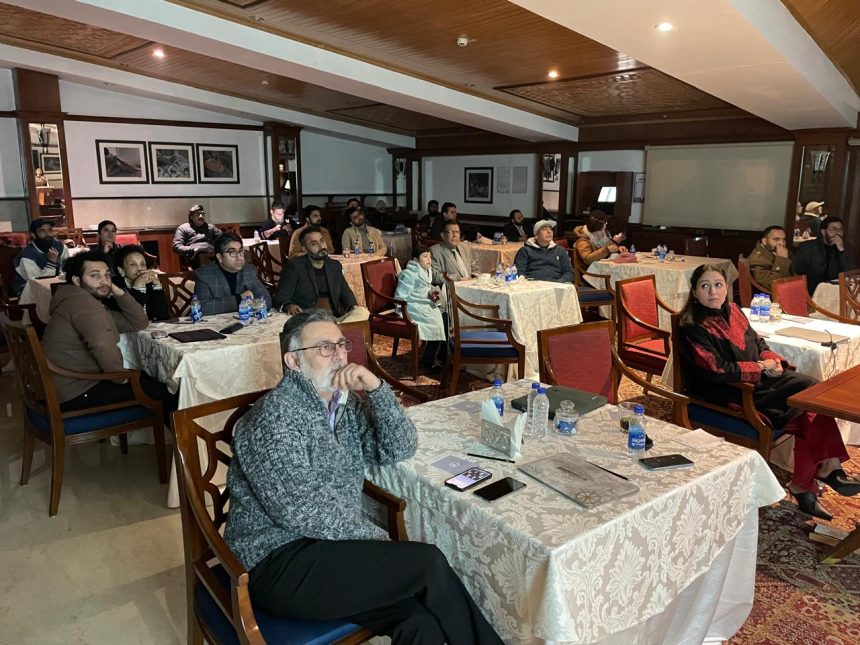Srinagar, Nov 30: Managing cancer during pregnancy is a delicate and complex issue, requiring a careful balance between treating mother’s cancer while safeguarding the health of the fetus, health experts from Indraprastha Apollo Hospitals said on Saturday.
The hospitals organized a pioneering press conference in Srinagar, focusing on two crucial and often complex areas of healthcare: fetal medicine and the management of breast cancer during pregnancy.
Dr. Sameer Kaul, Senior Consultant in Surgical & Clinical Oncology at Apollo Cancer Institutes, spoke about complexities of managing cancer in expectant mothers.
He explored the latest approaches to ensuring safe and effective cancer treatment during pregnancy, emphasizing the importance of early diagnosis and multidisciplinary care to protect the health of both mother and fetus.
“Managing cancer during pregnancy is a complex issue, requiring a careful balance between treating the mother’s cancer while safeguarding the health of the fetus,” Dr Kaul said.
“Early diagnosis and a multidisciplinary approach are key to ensuring safe and effective treatment. This is an invaluable platform to share the latest advancements in the field and reinforce the importance of tailored care plans that prioritize both the mother’s and child’s health throughout the pregnancy. By fostering collaboration, we can continue to improve outcomes for expectant mothers with breast cancer,” he said.
Dr. Anita Kaul, Clinical Director & Consultant in Fetal Medicine and Genetics at the Apollo Centre for Fetal Medicine and Therapy spoke on challenges in fetal medicine highlighting the intricacies of diagnosing and managing fetal anomalies, the advances in genetic diagnosis and intrauterine fetal surgical procedures.
Discussions focused on the importance of collaboration, early diagnosis and multidisciplinary care in addressing the complex challenges faced by pregnant women with high-risk pregnancies and breast cancer.
Dr. Anita said fetal medicine is a rapidly evolving field that presents many challenges, particularly when it comes to diagnosing and managing fetal anomalies and genetic disorders.
“The complexity of high-risk pregnancies requires a comprehensive approach, integrating advanced imaging and lab diagnostic tools with close teamwork with the obstetrician and neonatologists to ensure the best possible outcomes,” she said.
“Our goal is to equip healthcare professionals with the knowledge and strategies to navigate these challenges, providing expectant mothers with the best care for both themselves and their babies,” Dr. Anita said.








